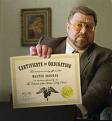Shepherding Builds Community
How Do You Prepare God’s People For Works of Service? Part VII
 In the early 1900’s homes had “parlors”, “sitting rooms”, and “living rooms” for the purpose of informal and formal “visits” from friends and family. Sunday afternoons were times of traveling to friends for “visits” or be asked over for a meal. Hospitality was extended to all. Churches were part of a local community, and since the horse and buggy era was coming to a close, most activities happened locally, usually around church functions. By the end of the century with the automobile, people were passing each other on the way to church, no longer attending the closest community church, but traveling to the church that now best met their family’s needs in a changing social and religious climate.
In the early 1900’s homes had “parlors”, “sitting rooms”, and “living rooms” for the purpose of informal and formal “visits” from friends and family. Sunday afternoons were times of traveling to friends for “visits” or be asked over for a meal. Hospitality was extended to all. Churches were part of a local community, and since the horse and buggy era was coming to a close, most activities happened locally, usually around church functions. By the end of the century with the automobile, people were passing each other on the way to church, no longer attending the closest community church, but traveling to the church that now best met their family’s needs in a changing social and religious climate.
 Today homes have “entertainment centers” as center pieces in “family/recreation rooms”. Most families hibernate in them: Pop controls the flat large screen High Definition Television with his complex remote control; the children play video games on their X-box or WIII system; Mom and/or the children text their friends on their smart phones. No one needs to have “friends over” to visit anymore because they can text, Facebook, Skype, or Face Time them on their Smart Phones. “In person” presence is no longer required, just audio and video and the availability of internet connections. The gift of hospitality is becoming a diminishing and soon to be lost art of developing community.
Today homes have “entertainment centers” as center pieces in “family/recreation rooms”. Most families hibernate in them: Pop controls the flat large screen High Definition Television with his complex remote control; the children play video games on their X-box or WIII system; Mom and/or the children text their friends on their smart phones. No one needs to have “friends over” to visit anymore because they can text, Facebook, Skype, or Face Time them on their Smart Phones. “In person” presence is no longer required, just audio and video and the availability of internet connections. The gift of hospitality is becoming a diminishing and soon to be lost art of developing community.
I believe the shepherding aspect of the five fold may be glue in keeping “church community”. Although social networking keeps people in contact, there is still nothing like a personal touch, a caring hug, the tone of voice that brings comfort and peace, and a look in one’s eye of assurance and respect. Shepherding is all about relationship and the caring, nurturing, and developing of others to transform them into the likeness of Jesus Christ as well as bringing unity to the body of Christ.
Hospitality is still the key, because hospitality is all about openness and transparency. When we open our lives and homes and become transparent, people see us for whom we really are. My question is, “When you open up and become transparent, do others see Jesus in you?” That development of Jesus in you is what shepherding is all about: not just planting the seed, but nourishing it, maintaining it, cultivating it, and releasing it when ripe for harvest. Do you feel “at home” in your own skin? Do you feel comfort and at peace? If so, be transparent, and open yourself up to others, so they can “experience” Jesus in you and through you. That is the art of discipleship, of mentoring, of spiritual parenting, of shepherding.
 If the Church is to remain the center of hospitality, then the believers in Jesus Christ have to be willing to be exposed, be vulnerable, and take risks if they plan on helping to care for, develop, and mature their brothers and sisters in the Lord. I John 3:16 is crucial in this effort, for we, as brothers and sisters in the faith, have to learn what it means to “lay down your life for your brethren.” Only then will the true art of “shepherding” will occur through the five fold in the body of Christ, the Church.
If the Church is to remain the center of hospitality, then the believers in Jesus Christ have to be willing to be exposed, be vulnerable, and take risks if they plan on helping to care for, develop, and mature their brothers and sisters in the Lord. I John 3:16 is crucial in this effort, for we, as brothers and sisters in the faith, have to learn what it means to “lay down your life for your brethren.” Only then will the true art of “shepherding” will occur through the five fold in the body of Christ, the Church.









































































